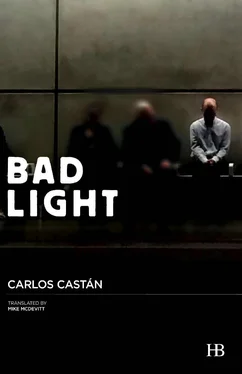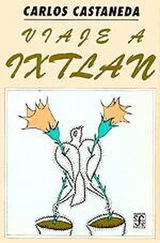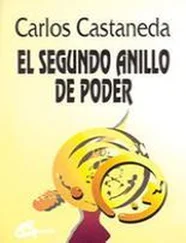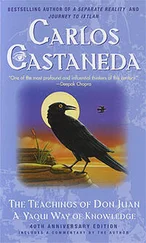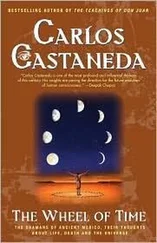Carlos Castán - Bad Light
Здесь есть возможность читать онлайн «Carlos Castán - Bad Light» весь текст электронной книги совершенно бесплатно (целиком полную версию без сокращений). В некоторых случаях можно слушать аудио, скачать через торрент в формате fb2 и присутствует краткое содержание. Год выпуска: 2016, Издательство: Hispabooks, Жанр: Современная проза, на английском языке. Описание произведения, (предисловие) а так же отзывы посетителей доступны на портале библиотеки ЛибКат.
- Название:Bad Light
- Автор:
- Издательство:Hispabooks
- Жанр:
- Год:2016
- ISBN:нет данных
- Рейтинг книги:5 / 5. Голосов: 1
-
Избранное:Добавить в избранное
- Отзывы:
-
Ваша оценка:
- 100
- 1
- 2
- 3
- 4
- 5
Bad Light: краткое содержание, описание и аннотация
Предлагаем к чтению аннотацию, описание, краткое содержание или предисловие (зависит от того, что написал сам автор книги «Bad Light»). Если вы не нашли необходимую информацию о книге — напишите в комментариях, мы постараемся отыскать её.
Carlos Castán
Bad Light
Bad Light — читать онлайн бесплатно полную книгу (весь текст) целиком
Ниже представлен текст книги, разбитый по страницам. Система сохранения места последней прочитанной страницы, позволяет с удобством читать онлайн бесплатно книгу «Bad Light», без необходимости каждый раз заново искать на чём Вы остановились. Поставьте закладку, и сможете в любой момент перейти на страницу, на которой закончили чтение.
Интервал:
Закладка:
Yet the mind is wont to erase such ideas at a stroke, much as it silences other questions that do perhaps matter when talk turns to escape: If you shatter all the crockery against the wall, how will you then blow off steam in future? If you sever all ties, what bonds will you then shrug off? If you abandon all point of reference, from where or from what can you now retreat? And the clincher, the central refrain of a woebegone song of destitution and abandonment that refuses to fade out altogether in your head: To what end your footsteps through the world, the new cities, the seas you cross, the paths you take, the horizons, the storms through which you pass and which pass through you, the fruits you grasp, your glory or your downfall, your wretched self lost in the desert of what lies ahead, if the eyes that once looked on your life are now closed?
4 (man overboard)
Christmas is the hardest time of year to get some time to yourself. There are people who call you at all hours to make sure you’re OK and aren’t festering in gloom during the holidays. They will not leave you be. They sign you up for dinners, they insist on taking you out on the town. I felt the need for a quick trip, to get a little distance from it all, and so it was that my 2010 began in Paris, a plastic cup in my hand and party music boring into my brain under an Eiffel Tower lit up in dazzling, electric blue. Thousands of people taking snapshots of the metallic chill and the effect of the laser beams on the steel and the sky, while dozens of hooded, tattooed youths lined up against every wall in a large, cordoned-off radius to be patted down by the police, hands behind their heads, feet spread as far apart as possible. In the neighboring streets, cars burned amid the sound of sirens and puddles of champagne.
It was fiercely cold the following day. Beneath the snowflakes that fell as if in slow motion, I walked the two or three blocks that separated my hotel from Montparnasse Cemetery, then whiled away a couple of hours between its walls, pausing before the same graves that had drawn me to them the first time I had set foot there several years before — the graves of Duras, Cortázar, Vallejo, Baudelaire — this time adding to my brief itinerary a couple of tombstones to which I had before paid little heed, pausing also before the grave of Serge Gainsbourg, covered with flowers, rain-sodden cigarettes, handwritten notes, and miniature bottles of liquor, and that of Jean Seberg, the lone huntress, who finally secured her spot beneath the funereal earth at the eighth request. Squatting on my haunches in front of each one, running my fingertips over the damp slabs as if the marble might offer up something akin to an answer, musing vaguely on the way of things and again wondering why it is that even my deepest desires, even when they go hand in hand with urgency, fury, or maelstrom, always materialize with a question mark. Sensing the perfume of the black roses, of the giant petals I cannot recognize, all of the sorrow laid out there, in the true heart of the world, around the cypresses, beneath the snow, beneath the stone, beneath all of the footsteps, beneath everything.
Paris was nothing more than a boulevard of ashes, so whispered Moustaki to my adolescent self from a red plastic battery-powered cassette player as I lay on my bed, at a time when the world’s cities first began to take shape in my mind, with their bridges, their secret places, and their towers, based on three or four photos I had stumbled upon and music aplenty. And that, a boulevard of ashes, was precisely what the streets were to me until I reached the Mirabeau Bridge. I had no way of knowing which side Paul Celan had leapt from on the night of the 19 thto the 20 thof April, 1970, and so I picked one at random and stood there a good long while, gazing at the water. I have never set much store by the time-honored metaphor that holds that life is a river that carries us along. Rather it strikes me that if time is pushing us onward, it does so while at the same time passing through us, wearing us down, transforming us from head to toe. It is not a question of the current simply carrying us, just as we are, from one spot to another, closer to the sea or to death with each passing minute. If there is no escaping the hours and days, tomorrow or the past, this is because yesterday has warped us, that’s all there is to it; it has taken us from A to B, leaving within us traces of calamity and weariness. I’d be lying if I said that my footsteps had led me to that bridge purely by chance. Peering over those railings had been the main reason for my trip to Paris. In order to arrive at or manufacture that moment, I had crossed the Pyrenees two days previously, catching a high-speed train in Pau with the sole intention of standing there a good long while, watching the water enter the arch of the bridge only to disappear behind my back, bound for the ocean. It’s strange how we sometimes choose the places in which to find answers or a simple tonic to ease the sorrow that possesses us, or to which vanquished gods we beg for light, the baffling way in which we scour the world for altars to kneel before and sacred moments, dubious symbols, gazes that take naked snapshots of us from up on high in a broken sky. As I contemplated the current from that spot, imagining the thunderous sound made by a body dropping like a stone from the railings at an hour when the whole world is asleep, I was in fact seeking to find out whether or not, when push came to shove, I wished to carry on living. Or, more to the point, whether or not I would carry on living. This was what had brought me there, although I believe that I could never, at that point or ever, have put a finger on quite why.
Those days, my inner devastation was complete, and I was bogged down in a state of uselessness that was dragging on longer than was desirable. My finances had run aground, everyday work had become a hellish affair, and my former excesses and the anxiety of that time, with its poor sleep and even worse diet, with all of its despair and pharmacopoeia, had started — prone to dying as I’ve always been — to take its toll on my body. I spent my time in the hotel reading. I had taken plenty of books but couldn’t settle on a single one, flitting from one to another, on edge, as one might when hunting for an urgent piece of information. I underlined the following passage in my copy of Sándor Márai’s Diaries : “Did I love her? I don’t know. Can one love one’s legs, one’s thoughts? Quite simply, everything is meaningless without legs or thoughts. Without her, everything is meaningless — I do not know if I loved her. It was something else. I don’t love my kidneys or my pancreas, either. They simply form part of me, just as she formed part of me.” I thought about calling Jacobo to ask him a question or two about the urban backdrop to Celan’s last days, but I couldn’t bring myself to do so, for he would no doubt have picked up on the alarm signals in my tone of voice, and I figured him capable of putting together a rescue sortie in a matter of hours to come to my aid if he pictured me wandering aimlessly through those streets, alone, my gaze obliterated, heading from bar to bar, in such dangerous proximity to the bridges.
There are dreams that simply tear you asunder, a thousand times worse than any insomnia, no matter how sweat drenched or heart stopping, no matter how fiercely the temples throb. As a reader or observer of life, I have always been a sucker for the lure I spoke of earlier of situations in which someone has no choice but to start from scratch: tales of prisoners released back into the outside world with little but the shirts on their backs; exiles who return to their former neighborhoods after years of absence in search of any old job with which to get by and a temporary room in which to hang their hat; foreign widowers who appear out of nowhere; people who, overnight, for whatever reason, change their habits and their passport. I had always seen a whirlwind of light there, the irresistible rush of wiping the slate clean, of turning what had until then been a remote possibility into something that lives and breathes, of calmly pulling up a chair to ponder, without haste of any kind, in any old bar in the recently unveiled world, who one will be from that moment on, the battles to be waged once more, and even, by extension, the fears that will from now on quicken the pulse in the midst of a ravaged landscape that is, at one and the same time, the cradle of all that is to come. Now that it was I, however, who found myself in such a fix, I couldn’t shake the feeling that I had fallen by the wayside, sick and sapped of strength for any further adventures for the time being. All the same, the old urge to take flight was triggered, the same one that had led me to drive hour after hour down Spain’s highways every summer, aimless and heading nowhere in particular, listening to country records, stopping to rest at gas stations, and jotting down vague musings in a small notepad. Only this time it was triggered in a much more scattershot, painful way, for this now had nothing to do with that old affectation of scribbling on maps or looking for hotels as desolate and cinematographic as possible in which to spend the night, with a broken down ice machine, tattered blinds, and desolation in the form of damp patches on the wallpaper if possible. All that had before amounted to little more than a gentle gloom had now become spiderwebs and trembling. Those thousand-mile getaways bore about as much resemblance to this flight that had now begun as a child pretending to be killed by a shot to the chest does to one dying for real on the sidewalk, the whites of his eyes showing.
Читать дальшеИнтервал:
Закладка:
Похожие книги на «Bad Light»
Представляем Вашему вниманию похожие книги на «Bad Light» списком для выбора. Мы отобрали схожую по названию и смыслу литературу в надежде предоставить читателям больше вариантов отыскать новые, интересные, ещё непрочитанные произведения.
Обсуждение, отзывы о книге «Bad Light» и просто собственные мнения читателей. Оставьте ваши комментарии, напишите, что Вы думаете о произведении, его смысле или главных героях. Укажите что конкретно понравилось, а что нет, и почему Вы так считаете.
